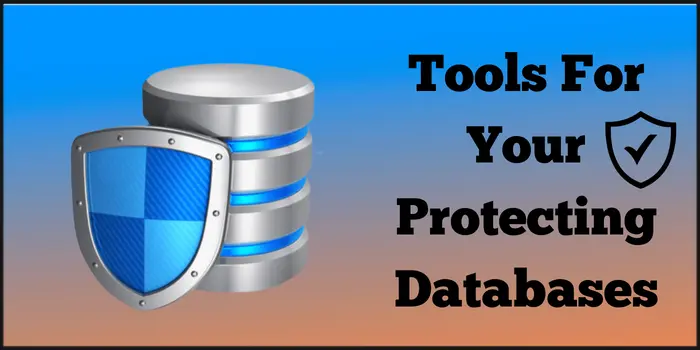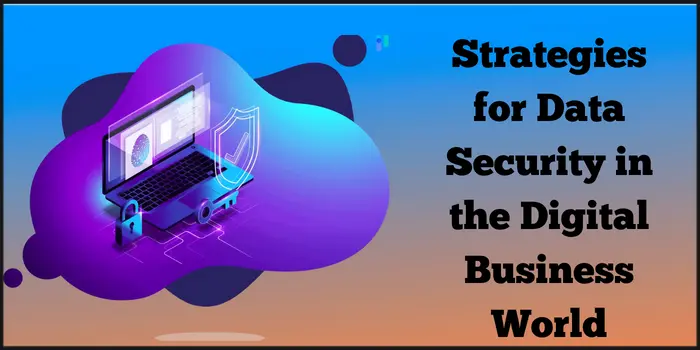Today, success in business requires some sort of online presence. Customers and clients today demand more than just a physical storefront or office; they want to be able to locate and communicate with you on the web.
What this means is that more and more companies are shifting to digitally keeping their most private data.
But this might also be a security risk. Today’s hackers are highly skilled, and they constantly seek new ways to breach computer defenses and steal sensitive information.
Under the General Data Protection Regulation (GDPR), all companies must prioritize customer privacy.
This includes following all applicable laws and making clear and explicit to individuals how their personal information will be used before collecting it.
Having sufficient security measures in place to prevent illegal access, destruction, or use of data is also crucial. So, how can corporations guarantee the security of their most private records? Here are some suggestions.
Table of Contents
Tools For Your Protecting Databases

Because of the potentially sensitive information stored in your database, keeping it secure is paramount. Databases can be secured in many ways, with the most common being the use of a firewall and encryption.
The appropriate tool for you will depend on your demands. Your database, however, must be secured appropriately.
You should also try to find disaster recovery for database products that work properly. You may rest assured that your information will be secure in the event of a disaster. Having numerous levels of security is often necessary to keep sensitive information safe.
Hackers will have a far more difficult time gaining access to data if they are required to circumvent multiple layers of protection.
Sometimes it’s impossible to keep all your data safe. Although data loss can have a significant impact on an organization, there are various measures that can be taken to lessen the blow and speed up recovery.
Multiple layers of protection are typically the best at protecting information. Hackers will have a far more difficult time gaining access to data if they are required to circumvent multiple layers of protection.
Furthermore, due to the sensitive nature of the information stored in your database, its security must be prioritized. Would you like to use a VPN service without worrying about spam affecting your IP or Mac address? If so, here is the best free VPN for router to ensure complete security for all of your devices and IP addresses.
Put in place a system to create and manage secure passwords.
Your password serves as the initial line of security against cybercriminals. It’s critical that it be as sturdy as possible. Passwords that combine upper and lowercase letters, numbers, and special characters are more secure than those that use just one type of character.
Furthermore, it should be something you haven’t used for any other accounts before.
The use of password management software is something that businesses should think about if they are serious about implementing strong passwords. All of your password needs may be met with the help of these utilities, from generating and storing strong passwords to automating their use in login forms.
That way, workers are less likely to use simple passwords by accident, and more time is saved.
However, organizations need to ensure that their staff is manageable by providing them with sufficient passwords and facilitating their access to the systems they need. Finding a happy medium between safety and usability is the goal.
Secure private information.
Encryption is the process of making information unintelligible to unauthorized parties. As a result, it’s a lot harder for hackers to steal information or decipher encrypted files. Even if a hacker manages to intercept your data while it’s encrypted, it’ll be completely useless to you until you give them the key to decrypt it.
Companies should select the encryption method that best meets their requirements among the several available. Some companies choose to encrypt everything, while others prioritize the most sensitive files. In any case, encryption is a powerful tool for preventing the theft of sensitive information online.
Additionally, companies should be aware that encryption is not completely secure. Some encrypted data may still be vulnerable to hackers who have access to the necessary equipment and time to decrypt it. That’s why it’s crucial to employ additional safeguards on top of encryption.
Implement access control measures.
This ensures that only approved personnel will have access to the information. No employee should be allowed to download or copy company data onto their personal devices, and workers should be provided access to only the data they need to execute their jobs.
Furthermore, organizations should have policies in place for the access and utilization of data. Limits on who can view the data and when they may view it could be one such example. This can help ensure that no rogue workers gain access to the data or misuse it in any way.
When necessary, staff members must be able to divulge information to one another or to third parties. In such a scenario, companies should think about utilizing data-sharing platforms with built-in safeguards, like encryption and permissions management.
For more secure and limited data sharing, this method may be useful.
Set up virus protection and firewalls.
Firewalls are a security measure that prevents unwanted users from connecting to your network. Malware is software written with the intent to damage your computer, but antivirus programs can help you find and eliminate it.
They both have the potential to keep hackers out of your system. To remain useful, however, they must be updated frequently. In light of this, organizations might think about using a managed security service, which would take care of security upgrades and other chores.
Companies should use firewalls and antivirus software, and they should always update their software. Because unpatched software is easier for hackers to exploit, it’s crucial to always use the most recent version of any piece of software.
Staff security education.
If your team has more security knowledge, they will be better able to protect your information. Every single worker must be briefed on the significance of security and the dangers they face. Their knowledge of data security measures, such as the importance of strong passwords and encryption, should also not be overlooked.
And workers need to know what to do if they think their system has been compromised. They need to know who to call in the event of a security breach and how to go about filing a complaint.
When it comes to security, it’s crucial to inform staff about the dangers they face. Doing so can help lessen the possibility that a hacker will gain access to your data.
Make use of two-factor authentication.
It’s important to realize that two-factor authentication (2FA) is a strong security mechanism that may be utilized to safeguard information. Two-factor authentication (2FA) necessitates the use of at least two separate pieces of information, such as a password and a code sent to a mobile device, before granting access to sensitive data.
Since they’d need both the password and the code to access the information, hackers would have a far more difficult time. Therefore, two-factor authentication can be an efficient method of safeguarding data, especially sensitive data.
The implementation of 2FA can be difficult, but there are many resources available to help firms get started. Furthermore, there are numerous 2FA providers to choose from, each with their own set of advantages and disadvantages.
Consider purchasing a virtual private network (VPN).
It is possible to safeguard information by using a virtual private network. All data sent through a virtual private network (VPN) is encrypted, making it harder for hackers to read.
When employees are working from afar, they can use virtual private networks (VPNs) to keep sensitive information safe while in transit. This is crucial because hackers frequently use unsecured public Wi-Fi networks to steal sensitive information.
Setting up a virtual private network (VPN) can be complicated, but there are many tools available to help organizations get their VPNs up and running. Furthermore, there are multiple VPN services, each with its own set of features and pricing structure.
Don’t fall behind on updates for your programs and hardware.
Even though it may seem like common sense, keeping your software and hardware up-to-date is a crucial security strategy. This is because outdated software typically contains security flaws that can be exploited by hackers.
Installing updates as soon as they become available is crucial to maintaining data security. Although it can be difficult, various tools exist to assist firms in maintaining up-to-date software and infrastructure.
Maintaining consistency requires establishing a regular timetable for releasing new content and sticking to it. By doing so, you can be assured that your information is as secure as possible at all times. However, don’t stop here; keep digging for the best security tools for your company.
Create regular data backups.
Having a backup copy of your data is essential in case the original is ever lost or damaged. Making a backup of your data is crucial in the event of data loss.
An external hard drive or a cloud storage service are just two examples of the many options available for creating backups. Picking a backup strategy that works for you and your company is crucial.
Additionally, it’s crucial to regularly back up your data. The frequency with which you back up will be determined by how frequently the data is updated. If, for instance, your website relies on a database that receives daily updates, then backups will need to be created more frequently than they would be for a static website.
There are occasions when data loss is inevitable. With backups, however, data loss can be mitigated and recovery time reduced.
There are a variety of measures that companies can take to safeguard their information. Protecting your data from theft, loss, or misuse requires taking appropriate measures.

